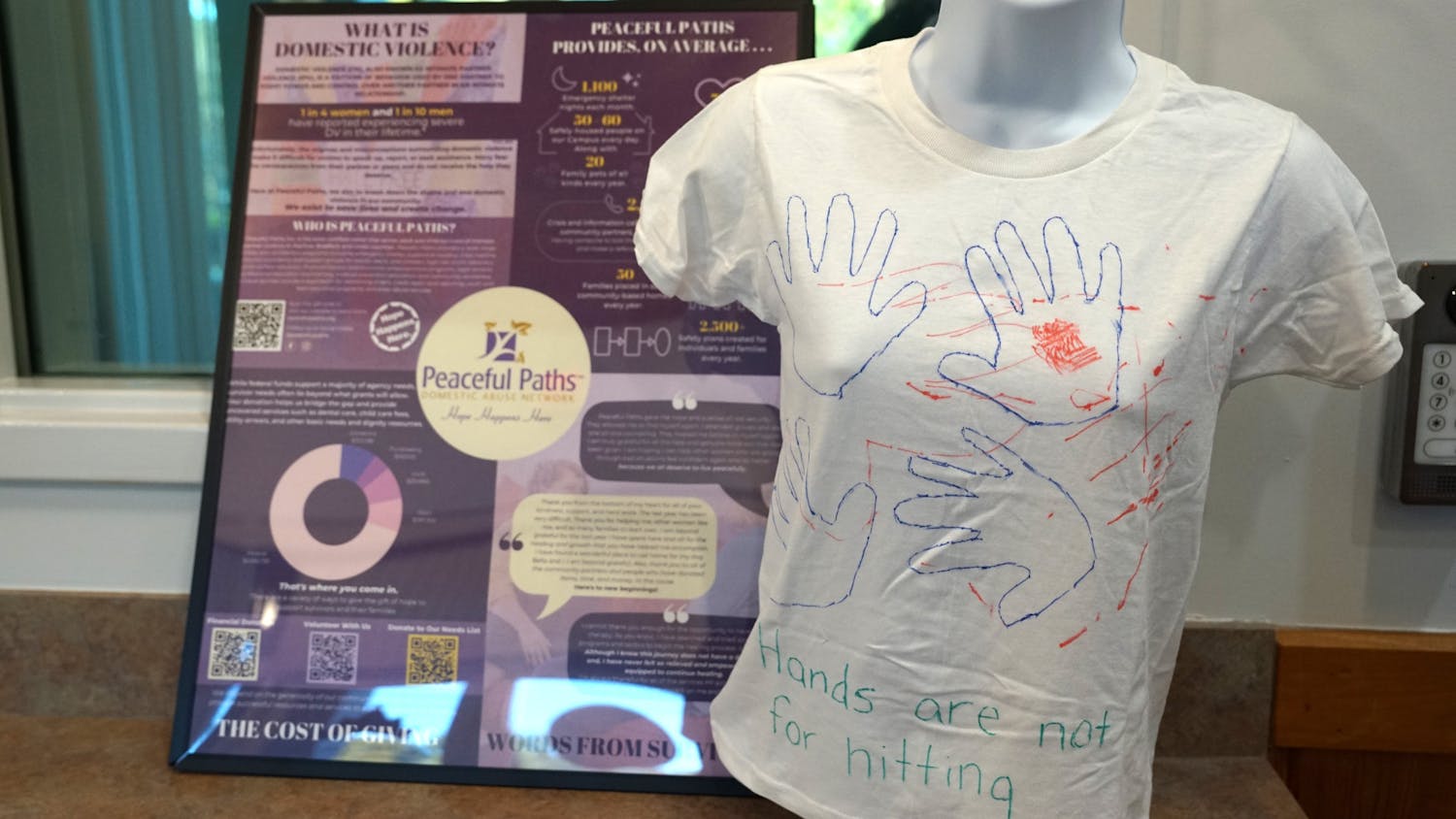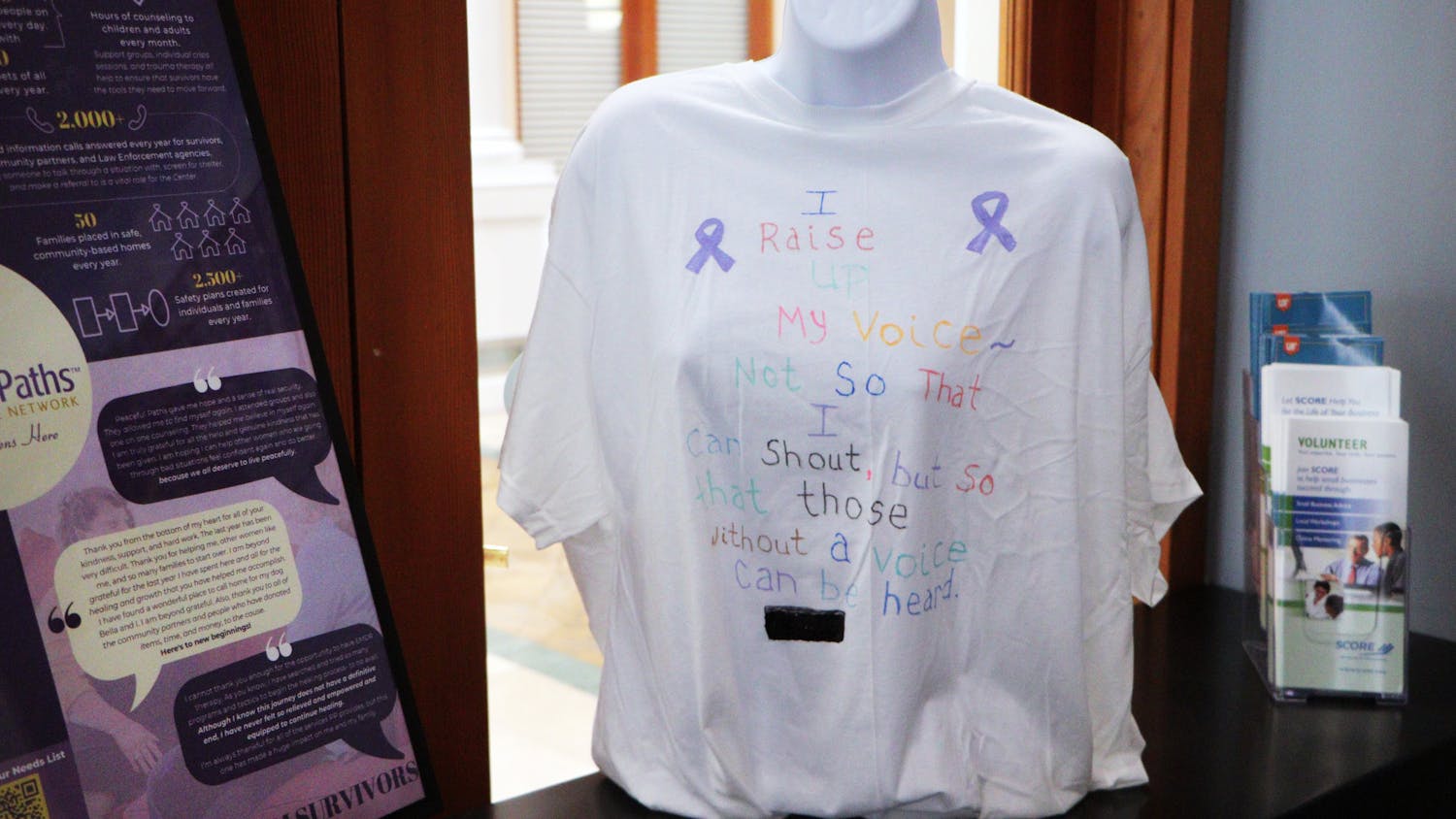I can still recall most of my Preview weekend at UF.
I remember sharing a room with my only friend from home. I remember how much we talked about the beautiful campus — smiling as we thought about all of the exciting opportunities ahead of us. But, what I didn’t remember about that weekend until recently was the presentation given by the University Police’s Office of Victim Services. As I try to remember sitting in the back of the large room, I can faintly recall the victim advocate introducing what the office does and where it is located — but beyond that, nothing.
Maybe because it was so short? Or was it that my mind was preoccupied with the more “interesting” or “relatable” presentations? Either way, I was about to move hours away from home and hadn’t thought once about what I would do or who I would talk to if I was a victim of a crime.
Laura Kalt, from the Gainesville Police’s Victim Advocate Unit, explained that “we don’t think about it, because we don’t think it can happen to us.”
Statistically, though, it can happen to any of us. In 2011, the Centers for Disease Control and Prevention published that more than 1 in 3 women and more than 1 in 4 men in the United States have experienced rape, physical violence, and/or stalking by an intimate partner in their lifetime.
What is intimate partner violence?
The National Intimate Partner and Sexual Violence Survey defines it as the “physical violence, sexual violence, threats of physical or sexual violence, stalking and psychological aggression (including coercive tactics) by a current or former intimate partner.”
There are many misconceptions about intimate partner violence, including that it is extremely rare, only happens to women and that it only occurs in minority communities.
But this type of violence happens to people from all walks of life, regardless of sexual orientation, religion, race or social status.
According to the National Coalition Against Domestic Violence, females ages 20 to 24 are at the greatest risk of experiencing nonfatal intimate partner violence.
One UF student, who wished to remain anonymous, was the victim of a violent crime her first year at UF. “We constantly think it’s the stranger in a dark alley that is going to harm us, but more often than not it is the person right next to us,” she said.
Awareness is the key to preventing this type of violence.
While UF has a plethora of services available after a situation occurs — from the UFPD Victim Advocates to the Dean of Students Office and the Counseling and Wellness Center — awareness of these programs is not as prevalent.
“The university is very helpful when it comes to protecting the well-being of students,” UPD Victim Advocate Laura Templeton said.
She added that in past circumstances, housing has moved students from residence halls they did not feel safe in, and the dean of students can even help students change classes if necessary.
But the student who was once a victim of crime said she didn’t know those resources existed.
When it comes to protecting yourself, knowing what constitutes a healthy relationship is key. Healthy relationships are built on respect, trust, honesty and communication. Controlling and violent tendencies from your partner should never be considered the norm.
In order to stop the cycle of violence, seeking help is the first step. If you believe that you or someone you know may be in an abusive relationship, please contact University Police to confide in a victim advocate.
Angelina LaPiana is a political science senior at UF. You can contact her via opinions@alligator.org.





